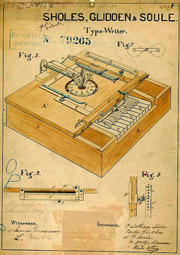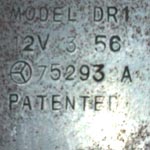How Easy is it to Get a Patent?
Patent offices have specific rules to follow to get a patent. It can be done by anyone who is prepared to do research and to study the requirements.
Many individuals are successful in filing their own applications and having them approved.

In a nutshell, these are the steps to get a patent:
- Develop your Idea
- Do a Patent Search
- File a Provisional Application (Optional)
- File a Complete (final) Application
- File a PCT Application (Optional for International Filing)
Note: Visit our main Patent page for links to the above.
The final step before you can get a patent, is the Patent Prosecution:
Having submitted your patent application, you must now sit back and wait for the Patent Office to do the examination. During this process they may ask for further supportive documentation or simply reject your application due to:
- Insufficient specifications and claims
- The invention is not new
- The invention is obvious
If the patent is rejected, depending on how and why, you may modify the application or argue with the examiner, but you may not add new features or claims to the application.
The examining process can be lengthy and take anywhere between one and three years. You therefore have to make sure that your initial specification document is as complete as possible.
Having said that, it is unlikely for an application to be approved without queries and a request for more information from the examiner - even if the application was done by a professional!

Some countries will only verify that the formalities have been complied with (non-examining countries). Other countries will do a full examination, considering prior art and whether in fact the invention passes all the requirements of a patent and as such can be granted a patent.
If the patent is granted, it will be published in patent journals and/or electronic media.
From that point onwards, you own a patent!!
Can a Patent be Revoked?
Yes - and this can happen at any time within the lifespan of a patent. The reasons can be many and varied; for example:
- The applicant lied in the application – for example s/he knowingly did not disclose the best method for the invention;
- The invention does not work as described;
- The person who filed the application to get a patent did not have the legal right to do so;
- A third party can prove the invention was not new as at the date of the application;
- Non-payment of the renewal fee.
Any further questions before you get a patent?
How to make money from your invention
How to enforce your patent rights
What is the lifespan of a patent
What does not qualify as a patent
You may want to consider consulting with a patent attorney or agent. Get a cost estimate for their services, should you need their assistance with some of the steps to get a patent.
You are here:




